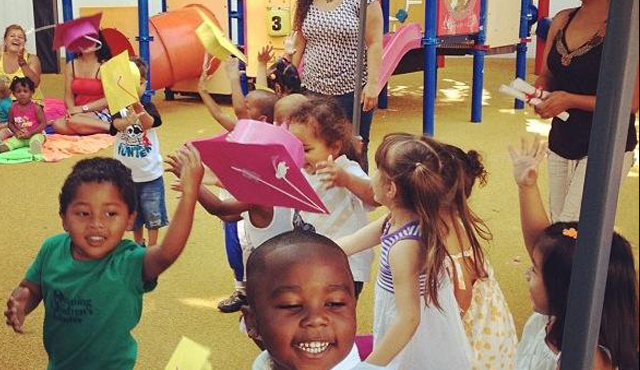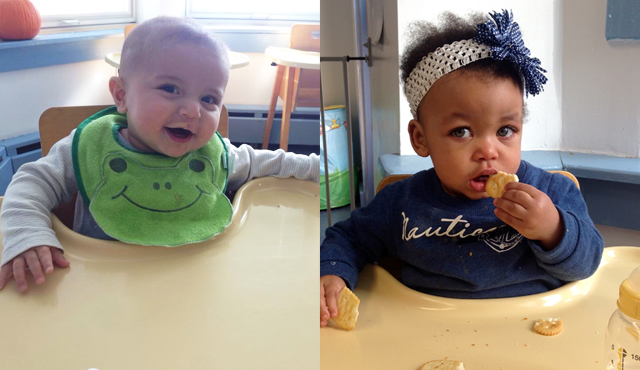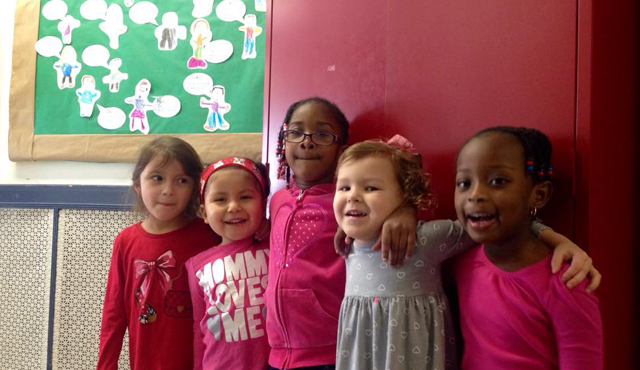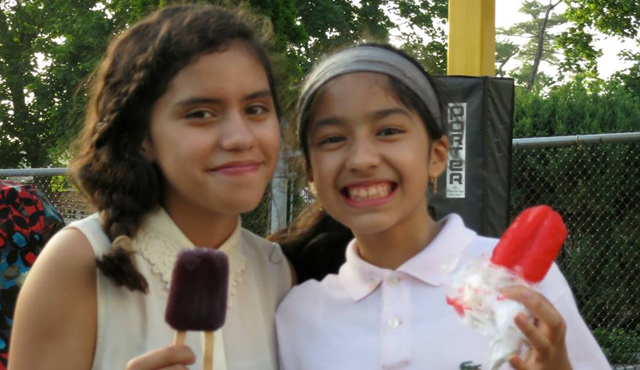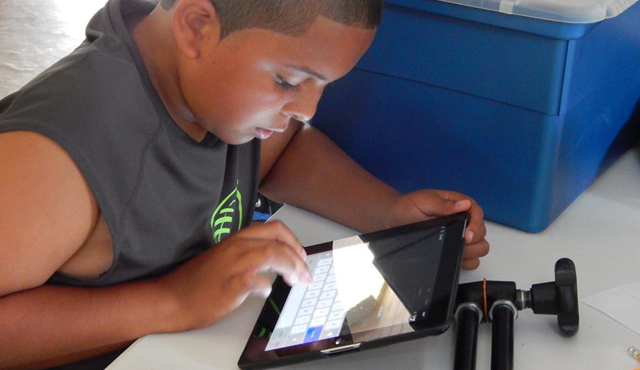Early Childhood
Educational Care for Infants and Toddlers
Ossining Children’s Center offers three year-round early childhood programs customized to each child’s age and stage of development. Each program provides a home-away-from-home where children develop a sense of security, trust, and self-worth. The early childhood years, in particular, are formative not just for the child, but also for the family, so we are here to provide the care and support your family needs during this special time.
High Teacher-to-Child Ratios for Individualized Attention
A child-centered approach is key to our philosophy. Our high teacher/caregiver-to-child ratio enables us to meet the individual needs of every child and family.
Infants
A Personalized Day at School
Each of our infants is assigned to a personal Primary Caregiver, with each caregiver responsible for just two infants. Each infant is on his or her own daily schedule, mirroring as closely as possible the at-home routine established by the parents. This predictability and consistency helps our littlest ones feel safe and secure at their home-away-from-home. Daily routines include:
- Feeding — on demand or on a set schedule, as determined by parents
- We are designated by the New York State Department of Health’s Child and Adult Care Food Program as a Breastfeeding-Friendly Day Care.
- Tummy Time
- Outdoor walks and play
- Reading aloud
- Sensory exploration
- Music
- Lots of personal attention and vocabulary-building conversation
Why does having a primary caregiver matter?
The bond between caregiver and child is the primary force in infant development – whether that caregiver is a family member or a teacher. Primary caregivers who play and interact joyfully with infants and calm them when they are distressed help shape healthy development of the brain through regulation of the nervous system. The bond nurtures the child’s ability to focus, self-regulate emotions, and bounce back from misfortune. It also fosters even the youngest child’s natural desire to learn. When children are confident from early childhood that their physical and emotional needs will be met, they learn to be self-assured, trusting, and able to manage conflict and stress.
With our mission to be your child’s second home, we pair every infant with a primary caregiver trained to develop a bond that mirrors the child’s attachment to the parent. And, because we have a very committed, high-tenure staff, your child’s attachment to his or her caregiver will not be disrupted by staff turnover.
Click here to learn more about the Philosophy underlying our approach to infant care and education
Click here to learn more about applying to our Infant Program
Toddlers
The Individual Eases into the Group
At about 18 months, children are gently eased into a toddler group. The exact age ofthis transition is different for every child; we let each child’s unique developmental process guide the timing of the transition. We help them become part of their peer community through “Circle time,” reading to small groups, group activities and having meals together.
An Environment Designed with Toddlers in Mind
The toddler classroom has differentiated play areas such as soft blocks, a pretend kitchen, story area, and a sand table. Our toddlers build vocabulary as they are introduced to the world around them. They run to the windows to see fire trucks going by, take walks, visit older children and siblings in other classrooms, sing to the guitar, and engage in arts and crafts projects. Our teacher-caregivers work with the children on potty learning, but don’t push.
Three Year Olds
Play is a Child’s Work
The curriculum for our older toddlers is play-based and open-ended. Children and teachers talk about whatever children bring to the classroom, whether object or idea. On any given day, they may build a block city, read about construction equipment, make a three-dimensional collage, and study dinosaurs, all while building critical cognitive and “academic” skills:
- Pre-math: stacking and counting blocks; sorting and ordering; music and rhythm
- Science: nature-based activities such as our annual caterpillar / butterfly metamorphosis
- Pre-literacy: drawing pictures for their journals
As a group, they learn important social and emotional skills for navigating life beyond their toddler classroom:
- Emotional: acting out experiences and issues that may be bothering them through dramatic play
- Social: teamwork and cooperation through group activities; taking responsibility for “jobs” like line leader or feeding the fish
Staff continue to work three-year olds on mastering potty skills.
Click here to learn more about the Philosophy underlying our approach to preschool care and education
Click here to learn more about applying to our Preschool Program


